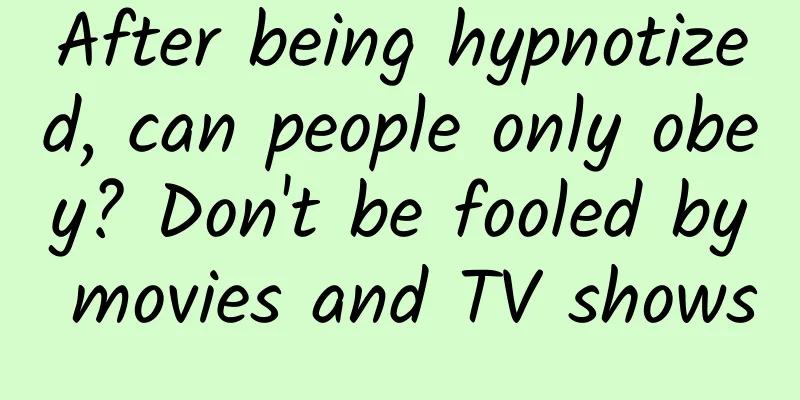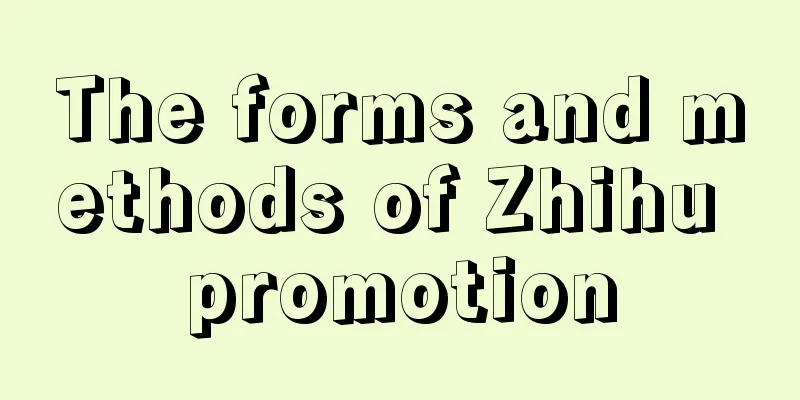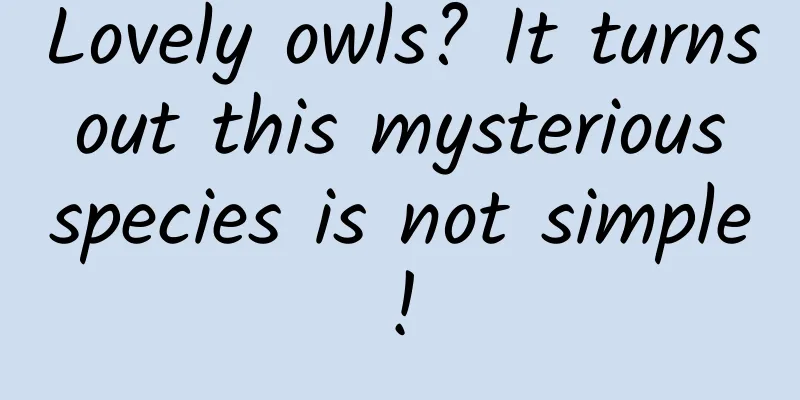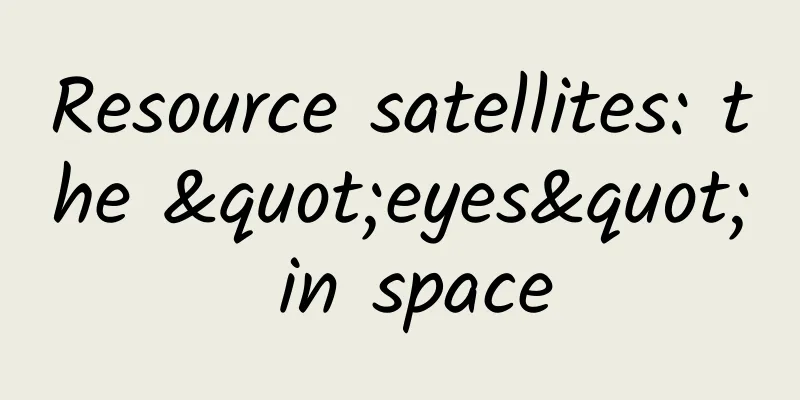After being hypnotized, can people only obey? Don't be fooled by movies and TV shows

|
Image source: Pixel Addict - CC BY 2.0 A mysterious person swings a pocket watch back and forth, repeating the words "You feel more and more sleepy, very sleepy" and issuing a series of absolute commands to his hypnotized subjects - in popular culture, hypnosis is often portrayed in this way, although this is not how hypnosis is actually practiced. Influenced by popular culture, not only do the general public have many misunderstandings about hypnosis, but even some professionals have inaccurate understandings of hypnosis. Compiled by Zhang Xianghe and Dong Yuan According to the definition given by the American Psychological Association, "hypnosis" is the process by which professionals or researchers suggest to someone that he or she experiences changes in feelings, perceptions, thoughts, or behaviors . Hypnosis is often used to treat some psychological disorders, such as anxiety, post-traumatic stress disorder, depression, insomnia, eating disorders, etc. Neuroimaging studies have shown that the effect of hypnosis lies in the fact that it stimulates the brain areas (such as visual processing areas) that are consistent with suggested events (such as hallucinations of objects) . "Hypnosis" is also often found in various popular cultures, especially in film and television works. The "hypnosis" shown in these works is usually very magical: for example, in the movie "Now You See Me", the magician can use hypnosis to manipulate people's subconsciousness and guide the hypnotized subjects to perform specific behaviors; in "Hypnotist", the psychologist uses hypnosis to make the patient enter a special state, allowing him to shuttle back and forth between the real world and the inner world; in "Get Out", the hypnotist can use hypnosis to imprison a person's thoughts, thereby depriving the hypnotized person of control over his body, and so on. Image source: unsplash Of course, these magical effects are more of an artistic processing of hypnosis in popular culture, and there is a big gap compared to the hypnosis therapy used in medicine in reality. This gap, on the one hand, adds a layer of mystery to hypnosis, and on the other hand, it also causes many misunderstandings about hypnosis among the public . Misunderstandings about Hypnosis Steven Jay Lynn, an expert on hypnosis and a professor of psychology at Binghamton University, State University of New York, believes hypnosis has many beneficial clinical applications, but myths surrounding it limit its full potential. Recently, Lynn and two colleagues published a review article in BJPsych Advances titled "Reconciling myths and misconceptions about hypnosis with scientific evidence", in which they described several erroneous views and misconceptions about the characteristics and practice of hypnosis, which are common and widely circulated in popular culture. The press release of the article summarizes several of the most common misconceptions about hypnosis: Myth 1: People who are deeply hypnotized will be "blindly obedient" Popular culture often conveys the idea that "hypnosis is a specific behavior performed on the hypnotized person that can be used to control others." Therefore, many people believe that people who are deeply hypnotized will show a state of "blind obedience" - no matter what the hypnotist suggests, they will automatically obey. But in fact, people in a hypnotic state do not lose control of their own behavior. They can resist or even oppose hypnotic suggestions - this depends on whether they have the intention and expectation to retain self-control. Image source: pixabay Myth 2: People who are hypnotized enter a special state of unconsciousness Hypnosis is often misinterpreted as a special state - the hypnotized person's psychological defense mechanism is weakened, and in a "body relaxed, conscious unconscious state", he or she can go deep into his or her own subconscious mind. In fact, however, a person can respond to hypnotic suggestions even if they are conscious and awake while riding a bike in the gym. The term "conscious unconsciousness" is inaccurate, as even the most easily hypnotized person is fully awake and aware of their surroundings while in a hypnotic state. A more accurate understanding of hypnosis is to view it as a series of procedures in which verbal suggestions are used to modulate a person's consciousness, perception, and cognition , rather than to unnecessarily induce a "special state." Myth 3: Either a person can be hypnotized or they can’t Although each person has a relatively certain level of hypnotic susceptibility, it is not accurate to assume that a person is either hypnotizable or not. The same person may have very different responsiveness to different suggestions - they may respond to some suggestions but not to others . However, most people are responsive enough to actually benefit from therapeutic hypnotic suggestions. Myth 4: Hypnotists have special powers Many people think that hypnotists are like wizards, with special powers that can hypnotize anyone. But this widespread belief is completely absurd. In fact, it does not require any special abilities to carry out hypnotic induction and precise suggestion, only social skills and basic skills required for experimental and clinical procedures (such as the ability to establish rapport) - but hypnosis can only be used by trained professionals in specific situations. Myth 5: The person being hypnotized can recover past life memories through hypnosis This is also a plot that often exists in film and television works: hypnosis can help the hypnotized person recall extremely accurate memories of distant past lives. In real life, there are indeed some people who claim that they have recovered past life memories through hypnosis. However, relevant research has found that these so-called "past life memories" are more derived from the information obtained by the hypnotized people and their own imagination, and actually reflect their expectations, fantasies and beliefs about their past life experiences and identities (for example, different races, cultures and genders) in a given history (such as the tenth century AD). Image source: pexels “Fallacy” exists not only in the masses These misunderstandings about hypnosis exist not only among the general public who do not understand hypnosis, but also among professionals. Even some fallacies are widely spread among clinicians and hypnosis educators. In 2021, also in the journal BJPsych Advances, several researchers published a paper titled "Update on hypnotherapy for psychiatrists". The paper made a very wonderful summary of the clinical application of hypnosis and some mechanisms in neuroscience, but some explanations of hypnosis still made the above-mentioned mistakes. The article "Reconciling Myths and Misconceptions about Hypnosis with Scientific Evidence" published by Lynn and his colleagues is a commentary on the above paper. They cited existing research evidence and corrected some incorrect or inaccurate parts of the paper: for example, the paper also described hypnosis as a special "conscious unconscious state" and believed that the hypnotized person would "blindly obey" the doctor's advice. Regarding these popular and professional misconceptions about hypnosis, Lynn and colleagues write: "The spread of misinformation about hypnosis can contribute to unscientific and inaccurate perceptions of hypnosis and move the field away from the evidence base, with potentially detrimental consequences for how clinicians apply hypnosis ." They hope that this review article will "bring greater attention to the common discrepancies between clinical practice and the evidence base and further promote psychiatrists' training and certification in this valuable but often misunderstood skill." This article is compiled based on the paper "Reconciling myths and misconceptions about hypnosis with scientific evidence" and its press release "You're not getting sleepy: Six myths and misconceptions about hypnosis from an expert". The views in the article only represent the original author and do not represent the views of Global Science. |
<<: Isn't it enough to just wash the cutting board? Why can't you reuse it?
>>: Not just lung cancer! Why is it so hard to quit smoking?
Recommend
How to choose a promotion channel that suits you based on the characteristics of short video channels?
There are new ideas every year, but this year the...
These are the top 10 signs of Alzheimer's disease. The earlier you discover them, the better!
Alzheimer's disease , commonly known as "...
How to accept the hurt emotions of children? "Useless" love is more powerful
As children grow up, they will always encounter v...
She replaced Musk, and the position of Tesla chairman was officially replaced
According to foreign media reports, Tesla said th...
Behind the "30 units" war of words: Xiaomi should not be complacent as it grows up
Recently, the news that Xiaomi was fined NT$600,0...
Weather forecast: It’s going to rain soon, scientist: Got it, caller ID!
Produced by: Science Popularization China Author:...
Tesla, WM Motor, and Volvo's L4 autonomous driving are coming soon? Qualcomm: We have to wait another 5 years
With the surge of automobile electrification and ...
The mini-programs are 2 years old and the mini-games are 1 year old, what should we expect on WeChat’s 8th anniversary?
There are still 14 days left until 2019, and WeCh...
Can Remix OS + Android box really replace computers?
Nowadays, the PC industry is gradually declining,...
Dongchedi: Xiaomi SU7 won the first place in the user reputation list of new energy vehicles in the 2024 car selection
As 2025 approaches, the "2024 Car Selection&...
Weighing more than two pigs! How was this champion giant pumpkin grown?
Your browser does not support the video tag Autho...
China Charging Pile Market Research
At present, there are more than 300 charging pile...
Analysis of Tencent Advertising’s direct e-commerce campaign in August!
With the standardization of direct-operated e-com...
HTC may have given up on mobile phones too early, VR may not be able to support the future
HTC, once a giant in the mobile phone industry, h...
AARRR Model: Mastering Gamification User Growth Strategy (Part 1)
We need a set of operational plans based on the A...









